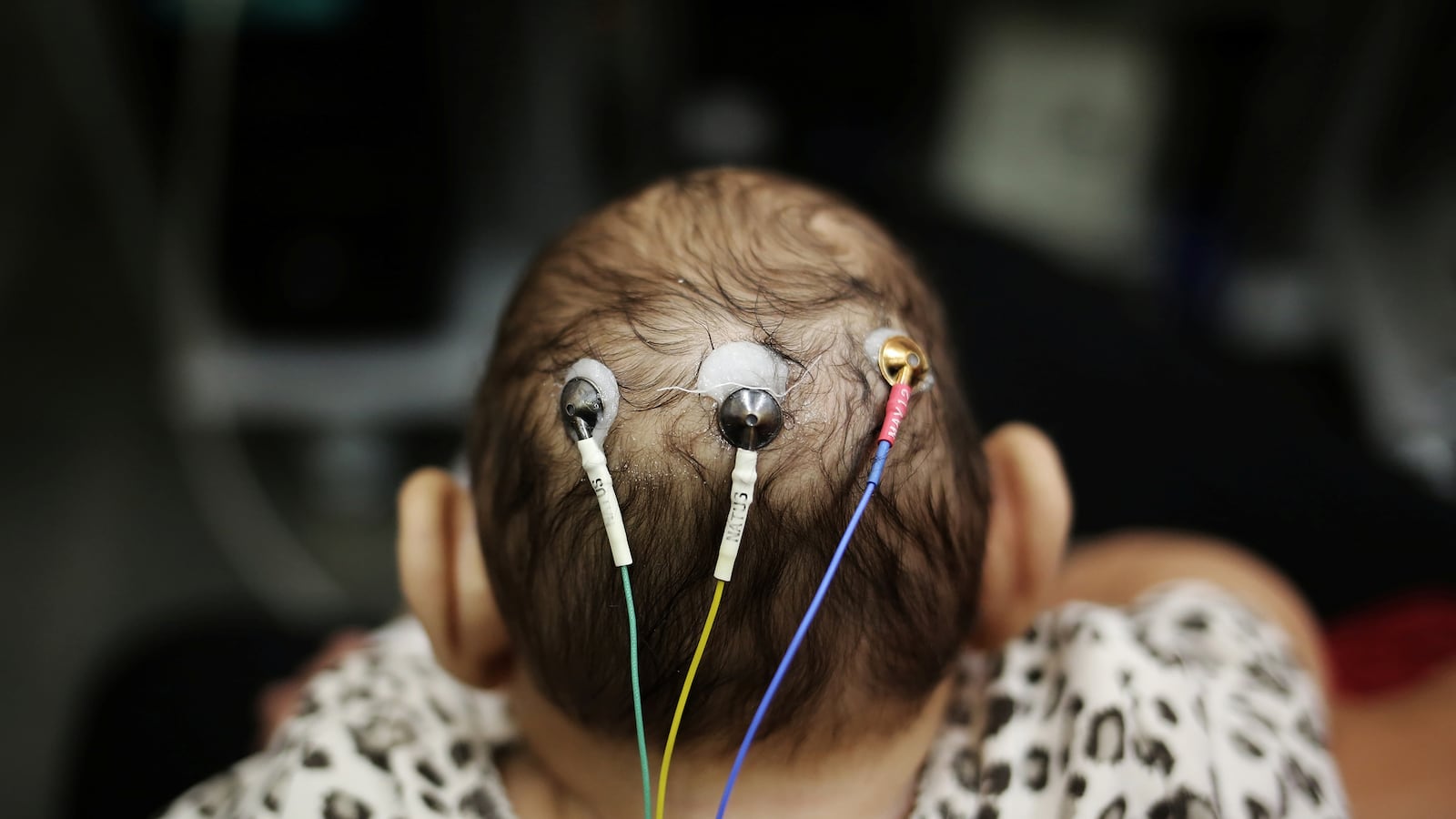Zika made it to New Jersey. You might not care.
We’ve been hearing about this possibility for months. First there were the crawling doubts that Zika caused disease, then the concerns, then the near certainty. We started to see some scattered women in the U.S., initially people who crossed into the country with it, then those who maybe probably sort of likely contracted it as a sexually transmitted disease. But no affected American babies, until now.
Now there’s a baby in New Jersey. You still might not care.
We’re not really in this crisis, not yet. As of now, no Zika virus has first accessed a human from a mosquito within the mainland United States, not yet. Right now, it’s a disease of a foreigner or someone who loves a foreigner, a disease of someone who crossed the border or had sex with someone who did. Is that why funding to combat Zika has been so contentious amidst this dark election year talk of border walls and Muslim bans?
Or maybe it’s because Zika really just doesn’t do that much to people who aren’t pregnant. Eighty percent of adults who get it are asymptomatic, and for the most part, they get better without really noticing what’s happened. It’s really only a huge big deal if you’re a woman and pregnant, or a woman who’s open to getting pregnant. Right? So you might not care. I get it.
I hear this kind of argument a lot, because I work in women’s health, and that’s what happens when you ask for resources for women’s health. Women are a niche, only slightly more than half of the population. (I know that’s not what niche means, but that’s what I hear.) And even that half of the population is only pregnant for what, a couple years of their life, on average? That probably comes out to about 1% of the general population, give or take, at any given time. So how much should be spent, really, on things like prenatal care, and contraception and safe childbirth and pre-eclampsia research?
That’s what we hear a lot, those of us who work in women’s health. But it’s when you actually think about it, when you say it out loud, that you can hear how false those arguments are. Because when you actually think about it, that’s not the way a species works. We are humans, so we reproduce. You’re a human, so you were, once upon a time, born. So it may be that I take care of pregnant women, but part of what I do is make sure that their pregnancies are as healthy as possible. And once upon a time, whoever you are, that pregnancy was you.
That’s where it’s been just the littlest bit satisfying to watch people, many of whom don't usually put women's health at the center of any agenda, start to grapple with what a threat like Zika can mean. Leaders such as Marco Rubio or Pope Francis are starting to get scared. They’re starting to notice that pregnancy and the prevention of disease during pregnancy, and perhaps even the prevention of undesired pregnancy, might be worth some attention.
Maybe these people will start to notice that nothing about taking care of humans during reproduction is easy, or simple. And maybe they’ll start to think that it might be helpful if we could add some nuance to the debates about sex or contraception or abortion. Maybe we can start to talk about some of these issues in stories and compassion, instead of slogans and shouting. (I know it’s 2016, but let me dream, ok?) Maybe they’ll start to care.
I’m not happy about Zika; actually, I’m terrified about what it is probably going to mean for my patients and my family and my work. But I am grateful for what it’s highlighting, and for how it’s bringing to the fore this eternal truth. Women’s health is not just your mother’s health, or your wife’s health, or health, or your daughter’s health.
It’s your health because that’s how humans work. Pay attention.





